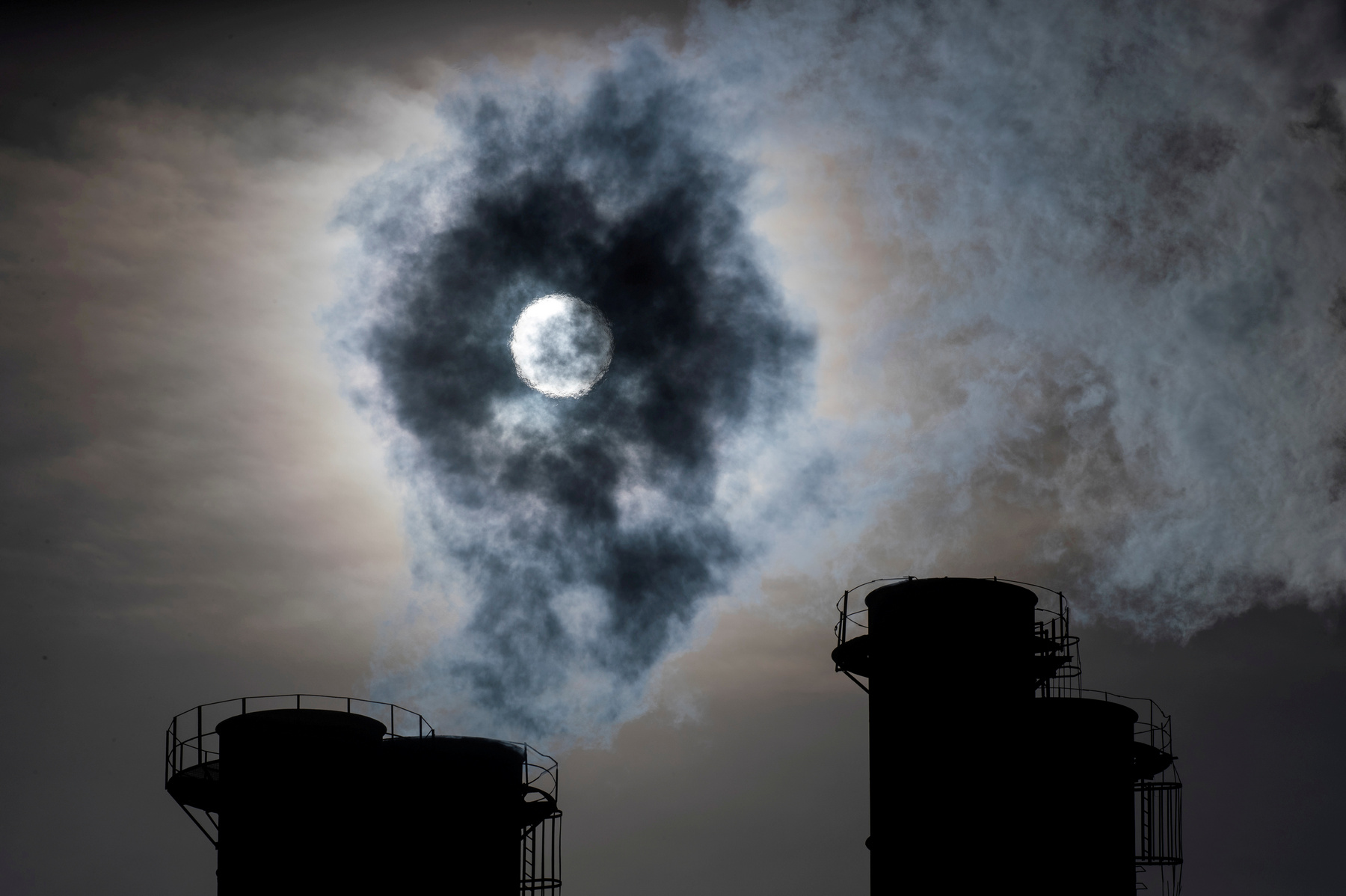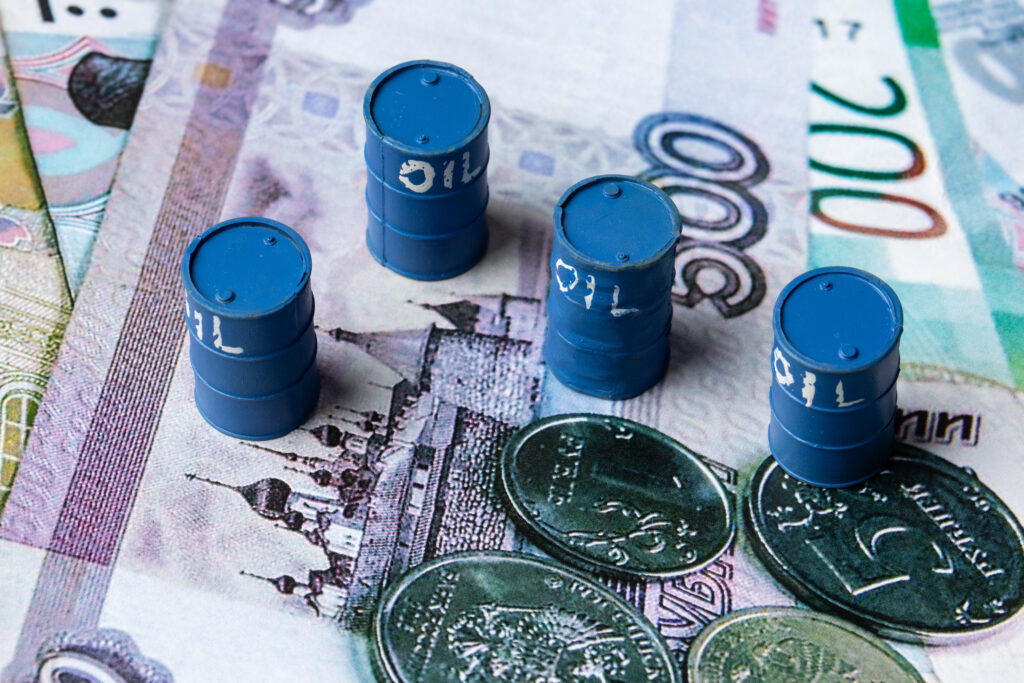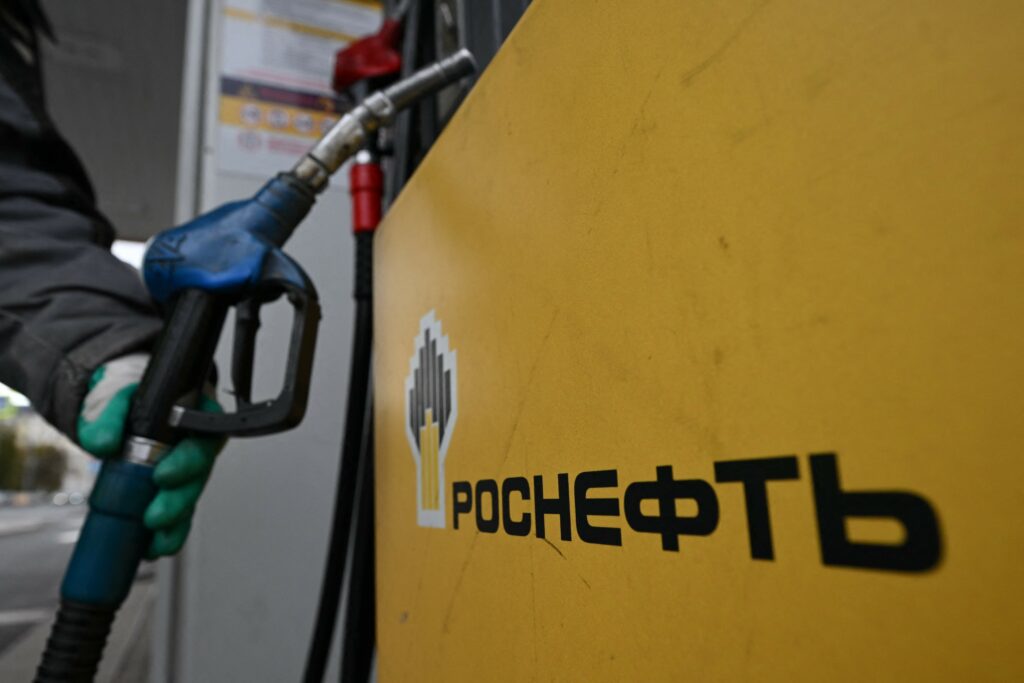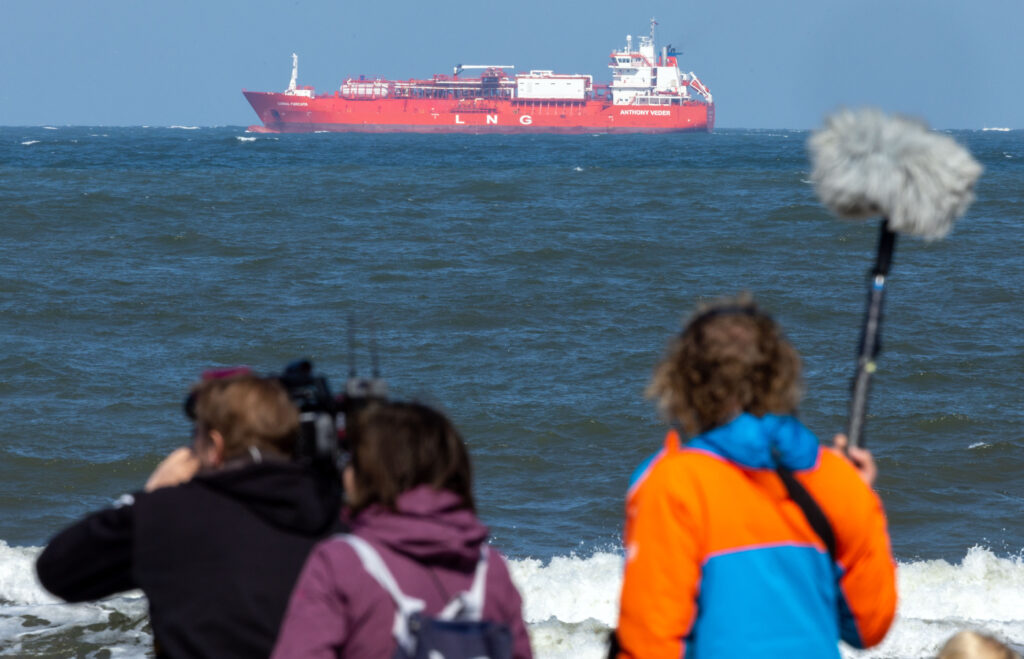In the context of the continued deterioration in relations between Russia and the West, the joint battle against global warming stands apart as a separate topic. It seems like both parties could bury the hatchet and work together in this area. At present, the EU and the USA both see climate change as a major threat to national security. Nowadays, forcing the «global polluters» to adopt more ambitious climate goals and enforcing the old goals is as much of an achievement for Western politicians as the fight against terrorism.
For instance, U.S. President Joe Biden believes that the climate and the terrorist threat are intertwined. Climate change «puts our national security at risk by leading to regional instability that (…) could make areas more vulnerable to terrorist activities,» reads Biden’s environmental plan.
Quite symbolically, the climate summit hosted by Joe Biden took place on 22 April, at the height of tensions in Eastern Europe, when the prospect of war between Russia and Ukraine seemed like a plausible scenario according to some observers. Vladimir Putin’s participation in an online discussion marked the beginning of a détente. Putin’s speech, however, was not sensational in any sense. He remarked that Russia complies with its commitments and also said he had issued an order to «substantially curb the accumulated net emission in the country by 2050,» which does not mean, however, that the emissions will actually be reduced.
On the one hand, Russia does not want to be seen as being forced into anything, which is why it is willing to engage in climate-related dialogue. On the other hand, it cannot assume leadership due to its deeply ingrained belief that it is not in Russia’s national interest to abandon hydrocarbons.
St. Petersburg International Economic Forum 2021
There has also been some progress in Russia’s ‘climate positioning’ in the international arena. Russia’s chairmanship of the Arctic Council in 2021−2023 includes several events devoted to climate change, including the World Summit on Climate Change and Permafrost Thaw in Yakutia (2023). At least ten sessions of the St. Petersburg International Economic Forum (SPIEF) in 2021 were devoted to environmental issues and decarbonisation. Moreover, these topics were raised not only during the thematic sessions, but in almost all the sessions related to Russia-West dialogue.
In 2019, Ruslan Edelgeriev, Russian President’s Special Envoy on Climate Issues, said that Russia would not assume new commitments under the Paris Climate Agreement and that there was «no need to rush anything» in renewable energy development. His rhetoric at SPIEF-2021 was different: Edelgeriev stated that Russia «has just transitioned to an active climate stance,» noting that it was due to external pressures rather than internal factors.
In turn, Russian Minister of Energy Aleksandr Novak announced that Russia aspires to build an export-oriented hydrogen production sector, as this type of fuel has zero carbon emissions. According to Mr. Novak’s estimates, the Russian Federation could win a 20% share of the global market for this resource, a percentage comparable to its current position in the global gas trade.
At the same time, one cannot ignore the attempts made by the central authorities and big business to shift the climate dialogue in a direction that is beneficial for Russia. In his speech at Biden’s climate summit, Putin drew attention to the need to reduce not only carbon emissions, but also those methane, another greenhouse gas. This was echoed by Lukoil Vice President Leonid Fedun at SPIEF. The reason is that Russian oil & gas companies have already done a lot to minimise the amount of natural gas that may leak into the atmosphere during production. The decarbonisation trend, on the other hand, requires them not to modernise production but to completely restructure their operations, a step they are obviously not yet ready for.
Evil causes
In Putin’s 2021 address to the Federal Assembly of Russia, a lot of attention was given to climate change and environmental protection. The President instructed the government to «create an industry to recycle carbon emissions, achieve volume reductions and introduce strict control and monitoring here,» and to pass a law on corporate responsibility for environmental damage. However, such measures look much belated in 2021. China and the USA are already developing and adopting comprehensive legislation in this area and setting clear deadlines for its implementation. In contrast, Putin’s message contained neither figures nor dates.
However, the Kremlin’s climate targets are not without trickery. According to its commitments under the Paris Agreement, Russia intends to reduce its carbon emissions by 70% versus the 1990 levels. This target is achievable because it has already been largely attained (emissions have been reduced by 50%). In fact, this reduction is an inevitable outcome of the decline of Soviet-style industry in the 1990s rather than the result of any concern for the environment. The enterprises which were not only economically unsound but also environmentally unfriendly were replaced in 2000−2007 by modern, less-polluting manufacturing facilities, not to mention the fact that the economy entered the post-industrial era. Nevertheless, carbon dioxide emissions have been rising over the past decade, despite the adoption of the first Climate Doctrine of the Russian Federation in 2009.
Vladimir Putin’s address to the Federal Assembly contained a curious fragment: «Over the next 30 years, the accumulated net greenhouse gas emissions in Russia should be lower than in the European Union.» Actually, these net emissions are already lower, and by a comfortable margin at that. In 2019, emissions in EU countries totalled around 2.8 billion tonnes of CO2, while Russia emitted just over 1.5 billion tonnes.
Moreover, Russia also has vast forested areas which absorb carbon dioxide. Sakhalin’s plans to reach carbon neutrality by 2025, i.e. to equalise carbon emissions with the amount that can be absorbed by the local forests, are based on this clever claim, widely circulated in the West thanks to a Reuters publication. The region is inhabited by around half a million people while the forest occupies an area of 5.7 million hectares on the island. As such, reaching this goal is not too difficult for the region.
More importantly, the contribution of mining to the region’s industry reaches almost 90%, with gas, oil and coal constituting the major part. While issuing press releases about a bright green future, the government of Sakhalin continues to report, with quite some nonchalance, a 7.1% increase in coal mining in 2020 and bemoans the decline in demand for oil caused by the pandemic. Thus, the region’s claims about carbon neutrality can be justified by the fact that almost all the hydrocarbons produced there are exported outside Sakhalin.
Russian hydrocarbon producers, especially private companies, outperform the political leaders in terms of climate positioning. For instance, Tatneft Group plans to shift towards carbon neutrality by 2050. Similar plans have been announced by Leonid Fedun, Vice President of Lukoil. The latter company is also actively investing in renewable energy sources, although mostly abroad. Lukoil has built its first solar power plant in Bulgaria and holds a stake in LandPower, a wind power company in Romania. In total, the company’s green capacities in Europe are nearly ten times larger than those located in Russia.
Climate of conflict
With its extensive experience of conflict management, Russia also has considerable potential in one area of climate diplomacy, namely preventing and resolving armed conflicts arising from climate change. Admittedly, this potential has not yet been put to practical use, but as the consequences of global warming become more visible, the importance of this sphere will increase.
One recent example is the cross-border conflict near the Golovnoy water distribution point on the Kyrgyzstan-Tajikistan border. Of course, the main reason for the clash was not climate change, but the lack of clear border demarcation. However, with increasing droughts and depletion of water resources in Central Asia, facilities such as Golovnoy become crucial and turn into a trigger that needs to be taken into account in conflict resolution.
With its influences in the post-Soviet space and its historical ties to the Middle East, Moscow could, in theory, make a significant contribution to peace in the territories that are most vulnerable to global warming. However, when it comes to mediation between the former Soviet republics in Central Asia, the Russian Foreign Ministry has so far only taken tactical steps in response to specific challenges. Since clashes such as the one at Golovnoy arise again and again, this indicates a lack of strategic approach.
Rhetoric versus reality
SPIEF‑2021 revealed a significant change in Moscow’s climate rhetoric. The defensive aspect is still strong: Russia excuses itself by saying that it is not among the main polluters. Quite on the contrary: it is an environmental donor to the planet. However, the Russian authorities are gradually beginning to realise that they need to change their approach right now in order not to be left behind in the energy world of the future, which is evolving regardless of Russia’s will.
On the other hand, even Russian participants in the discussions have noted that this direction in Russian foreign policy is clearly peripheral, the response to external challenges is slow, and the measures taken are forced and reactive rather than proactive. Most importantly, the climate rhetoric employed by the Russian authorities, which has only recently been brought closer to global trends, is not yet supported by sufficient action in this sphere, and the environmental objectives are excessively blurred.
One important milestone in climate diplomacy would be for Russia to announce a carbon neutrality target. China announced this in 2020, with a target set for 2060. Obviously, the feasibility of such pledges is questionable and they are certainly going to be adjusted. From the political point of view, it is more important for Beijing to sign up for the club of progressive powers, although economic benefits of the «green turn» are also obvious (increased productivity thanks to improved health in the population, modernised production, energy independence).
In contrast, the Russian long-term low-carbon development strategy envisages increased carbon emissions by 2030 in all four scenarios, and in two scenarios by 2050. The document emphasises that the energy transition must be gradual «to ensure the sustainable social and economic development of the Russian Federation,» and carbon neutrality is planned to be achieved «closer to the end of the 21st century.»
Alongside security and fight against terrorism, environmental issues will, of course, remain crucial if Russia wants to remain part of international formats in the future. This lies in the interest of Western politicians, who need to seek resources for decarbonisation and report on successes in the global climate dialogue, as well as commercial companies, which see great potential for renewable energy sources and hydrogen fuels in Russia. However, a rapprochement on the basis of environmental themes in the future will inevitably hit the glass ceiling of inertia in Russia’s approach. However, Moscow still has time to change the situation.










